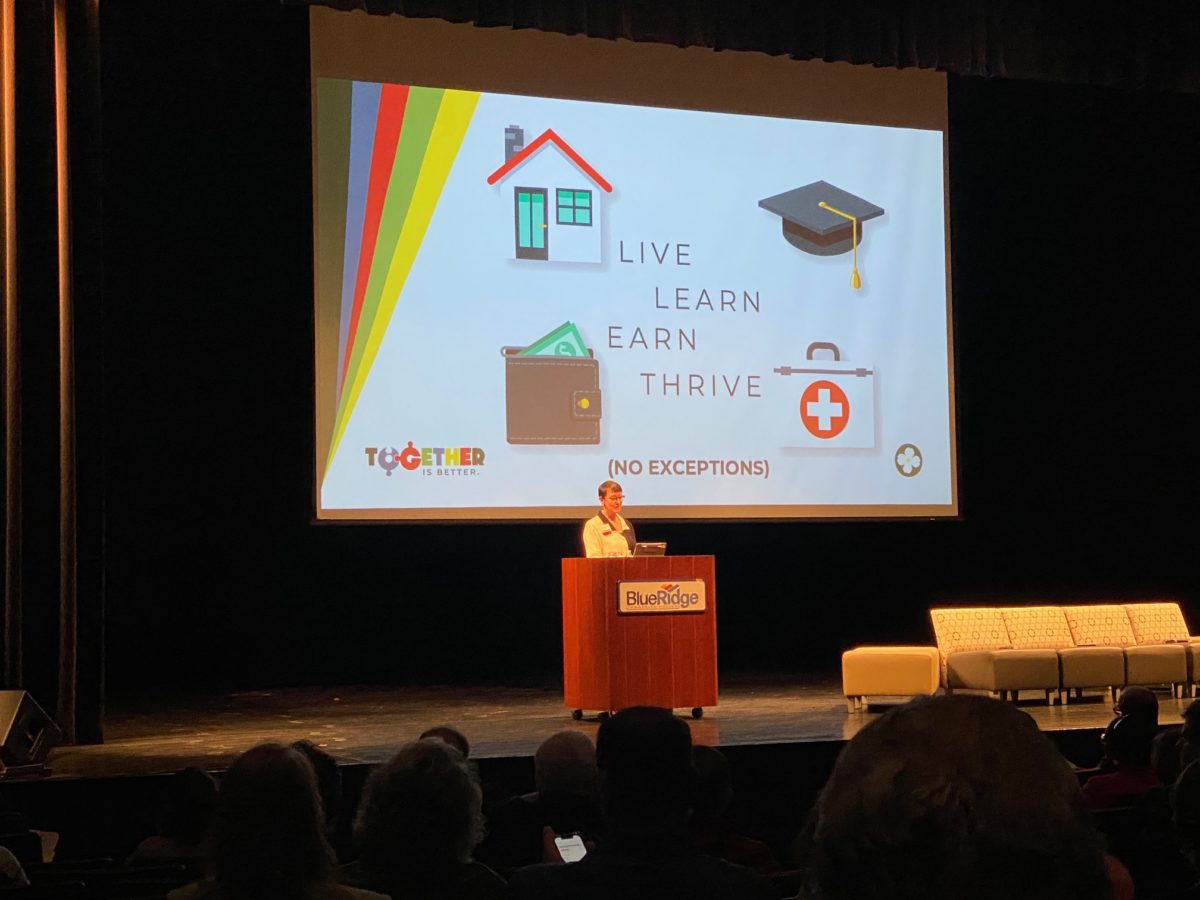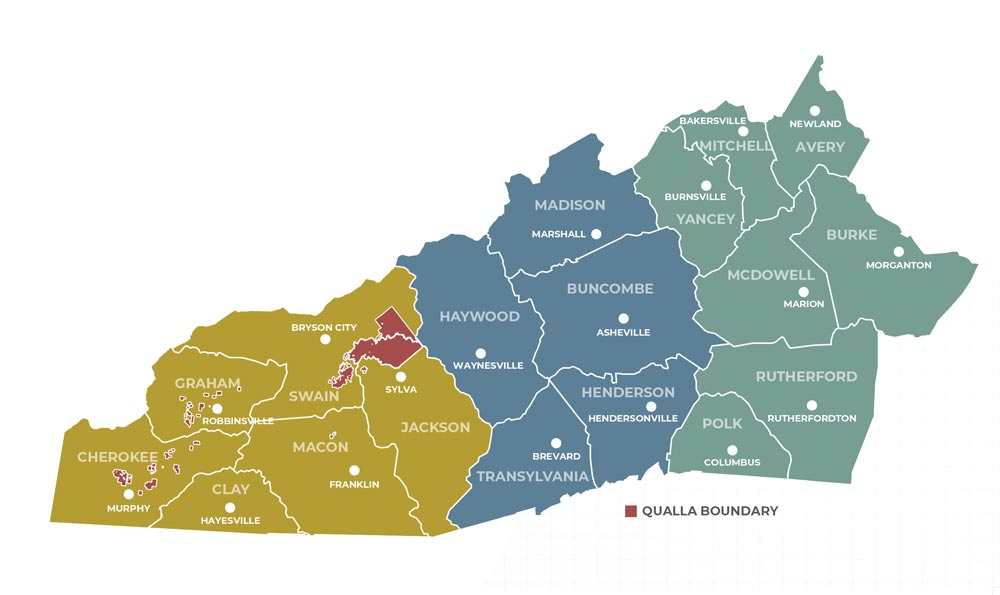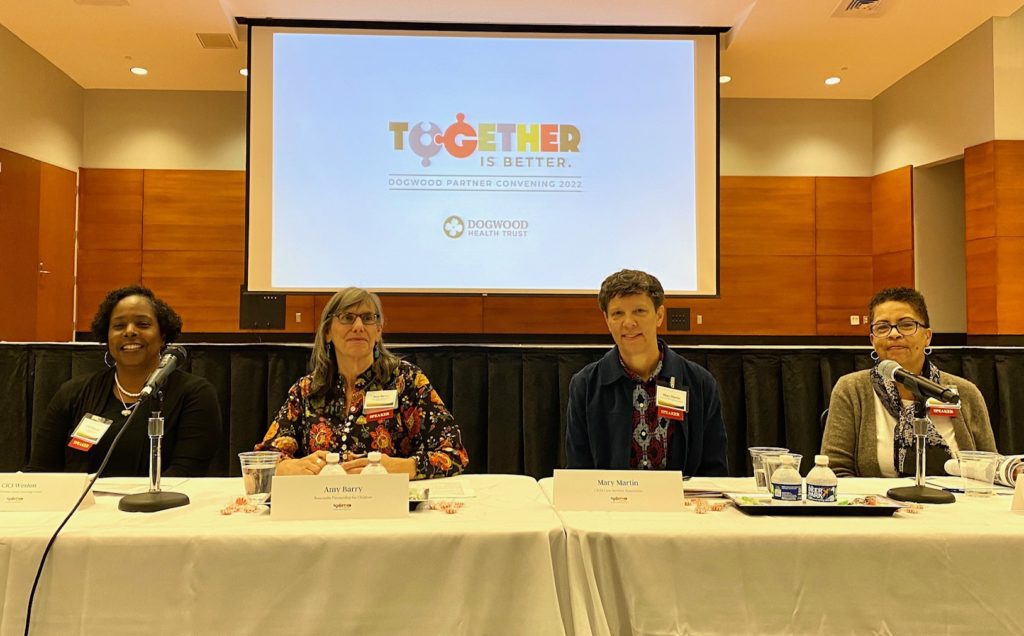

Imagine a region where the basics of life — health, education, opportunity — are abundantly available.
On Oct. 6, the Dogwood Health Trust held its first regional partner convening, bringing together more than 400 nonprofit leaders, community members, and partners at Blue Ridge Community College in Henderson County.
Susan Mims, the CEO, invited everyone to “dream together” about what it would look like for those who live in the 18 western counties and the Qualla boundary to live, learn, earn, and thrive without exception. Those last two words are important. Without exception.


The theme of the convening was “together is better.” Mims said the purpose was for all to “forge new relationships, share information, and build stronger networks.”
What is Dogwood Health Trust?
According to its website, “Dogwood Health Trust is a private foundation based in Asheville, North Carolina with the sole purpose of dramatically improving the health and well-being of all people and communities of 18 counties and the Qualla Boundary in Western North Carolina.”
The trust has 17 goals and 13 objectives across four strategic priorities, including housing, education, economic opportunity, and health and wellness.
The trust was established on May 16, 2018, and it has been fully operational since February 1, 2019.
So far this year, the trust has made or committed $74 million in grants and more than $12 million in impact investments.
Mims noted the trust’s commitment to work with equity, humility, respect, and transparency.
What does a loom have to do with community, philanthropy, and well-being?
During the convening, the trust held its 2022 annual community meeting. David Dodson, the former president of MDC and an expert on passing gear philanthropy, which looks at upstream causes of social disparities, led the conversation.
“We must accept the fact that this is an age in which the cloth is being unwoven. It is therefore no good trying to patch. We must rather set up the loom on which the coming generations may weave new cloth.”
— Sister Marie Clare, an English nun, 1988
Dodson said Sister Marie Clare’s quote applies to Dogwood’s work as well. “For many of us in this region,” he said, “the cloth of community — the vital threads of security and health and wellbeing — have become frayed, and as the cloth comes apart at the seams, people and places are falling through the gaps.”
“The frayed cloth is not strong enough to support future generations to live out their dreams,” said Dodson.
Now is the time for the region to weave new patterns of community, health, and opportunity, said Dodson.
“That really is the work that Dogwood and you as community partners have taken up,” said Dodson. “To build the loom that can nurture the imaginative ideas, strengthen the infrastructure, so that people of western NC can weave the new patterns of health, sustainability, and shared wellbeing now and into the future.”
Dodson said it will require social, moral, intellectual, reputational, and financial capital to build a new loom.
How will you use your capital to get proximate to people and places that are on the margins of opportunity, Dodson asked, to help build the loom and do some weaving?
How Dogwood is using data and research to weave when it comes to education
Ereka Williams is the vice president for education at the trust. Williams outlined three priorities for the trust moving forward on this strategic priority: the early education workforce, after school opportunities for students, and working with career and technical educators to make sure K-12 students are graduating career or college ready. Here is where you can find more information about the trust’s investments in education moving forward.
The trust uses data and research to inform investments on early education, K-12, and equity.
Here is research by the Child Care Services Association on early childcare and education in western North Carolina.
Here is a landscape analysis by the Education Policy Initiative at Carolina (EPIC) on educational outcomes in western North Carolina. There will be a community-wide webinar on this report on Oct. 26, 2022.
Here is a presentation by Iheoma Iruka, the founding director of the Equity Research Action Coalition at the Frank Porter Graham Child Development Institute at UNC-Chapel Hill, including 14 policies to dismantle systemic racism in early care and education.
“We can’t do this without our partners,” said Janice Brumit, chair of the board of directors of the Dogwood Health Trust. “We want to hear your voice. Continue to talk to us. Give us ideas. Tell us about your communities. We are in partnership with you. We cannot do this without you.”
Because it is happy and better to be together
Here are some photos and tweets from this great day.










“I appreciate Dogwood assembling grantees and experts in the field and creating the space for learning,” said James Ford, the executive director of the Center for Racial Equity and Education (CREED) and a member of the N.C. State Board of Education. “The explicit focus on equity for the western region of the state, particularly in early care and education, is some of the most pressing work coming out of the pandemic.”
Editor’s Note: The Dogwood Health Trust supports the work of EducationNC.


